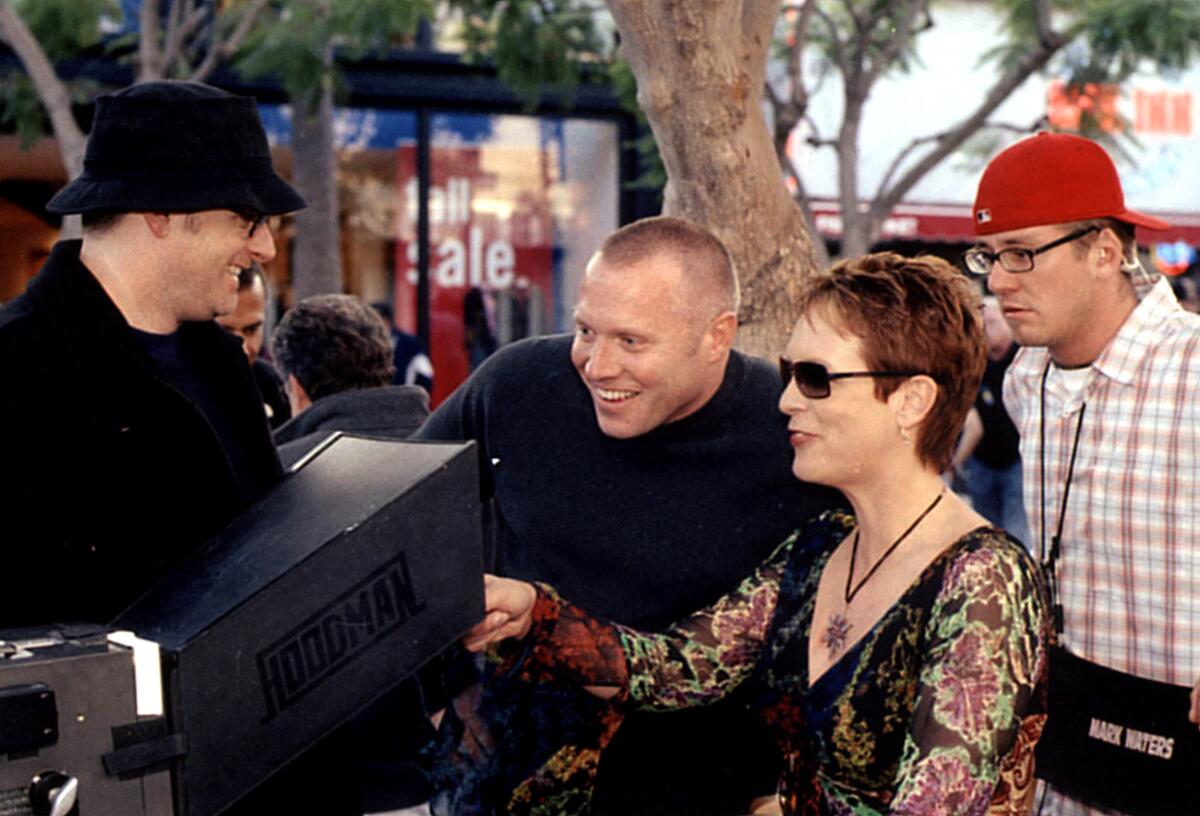Andrew Gunn dead: ‘Freaky Friday,’ ‘Cruella’ producer was 56
Andrew Gunn, a film producer on live-action Disney favorites including “Freaky Friday” and “Sky High,” has died. He was 56.
Gunn died Monday at his Toronto home following a battle with amyotrophic lateral sclerosis, or ALS, according to an obituary.
“He was a courageous and modest man always doing for others before himself. His love of family, friends, motorcycles and tattoos will long be remembered by those who knew him,” his wife Jane Bellamy Gunn said in a statement to USA Today. She told the outlet that Andrew had been diagnosed with Bulbar-onset ALS, a form of the neurodegenerative disease affecting the neck and face, in September 2025 after experiencing symptoms for more than two years.
The Canadian film producer was best known for his work on family friendly Disney comedies starting in the 2000s. Gunn launched his own production company, Gunn Films, in 2001 and had an exclusive first-look deal with Walt Disney Pictures.
Among his earliest hits was the 2003 body-swap comedy “Freaky Friday,” starring Jamie Lee Curtis and Lindsay Lohan as a mother-daughter duo who wake up one morning in each other’s bodies. The remake was made after Gunn had pitched the movie to then-studio president Nina Jacobson.

Andrew Gunn, center, with director Mark Waters, left, and Jamie Lee Curtis on the set of “Freaky Friday” in 2003.
(Ron Batzdorff / Disney Entertainment)
“Andrew Gunn … was a producer with great passion and emotionality which added so much to what makes those movies special,” Curtis wrote in her tribute posted to Instagram on Wednesday. “His legacy lives on, and he will be missed.”
Gunn was also the producer on the 2005 superhero comedy “Sky High,” as well as films based on iconic Disney theme park attractions, including “The Country Bears” (2002) and “The Haunted Mansion” (2003). His most recent credits include “Cruella” (2021), the fashion-forward origin story of “101 Dalmations” villain Cruella de Vil, as well as the next-gen sequel “Freakier Friday” (2025).
Born July 15, 1969, in Toronto, Gunn moved to L.A. to earn a master’s degree from the Annenberg School at USC, according to Deadline. He began his Hollywood career in the late 1990s, working at John Hughes’ Great Oaks Entertainment where he contributed to the development of films such as “101 Dalmatians” (1996), “102 Dalmatians” (2000) and “Flubber” (1997).
Gunn is also credited with helping establish the Disney Writers Program in 2001, where he championed and mentored up-and-coming writers.
“Andrew Gunn took a chance on a very green 29 year old from nowhere and gave him a screenwriting career and more than that…a family in my adopted city,” said “Clifford the Big Red Dog” writer and Disney Writers Program alum Blaise Hemingway in his Instagram tribute.
“Andrew fostered a fraternity of writers who did EVERYTHING together,” Hemingway added. “Lunches, Friday movies, happy hours at Mo’s, kid’s birthday parties. Alongside Andrew, we rewrote, roundtabled, did triage on productions in crisis…you name it. It was crazy, unhinged, and so [f—] fun. And despite the leather jackets and tattoos, Andrew was a softy who got a kick out of his writers’ knuckle-headed antics. He was a great mentor.”
Gunn is survived by his wife Jane; his children Isabelle and Connor Gunn; mother Anne Gunn; and siblings Hilary Knight, Graeme Gunn and Cameron Gunn.
